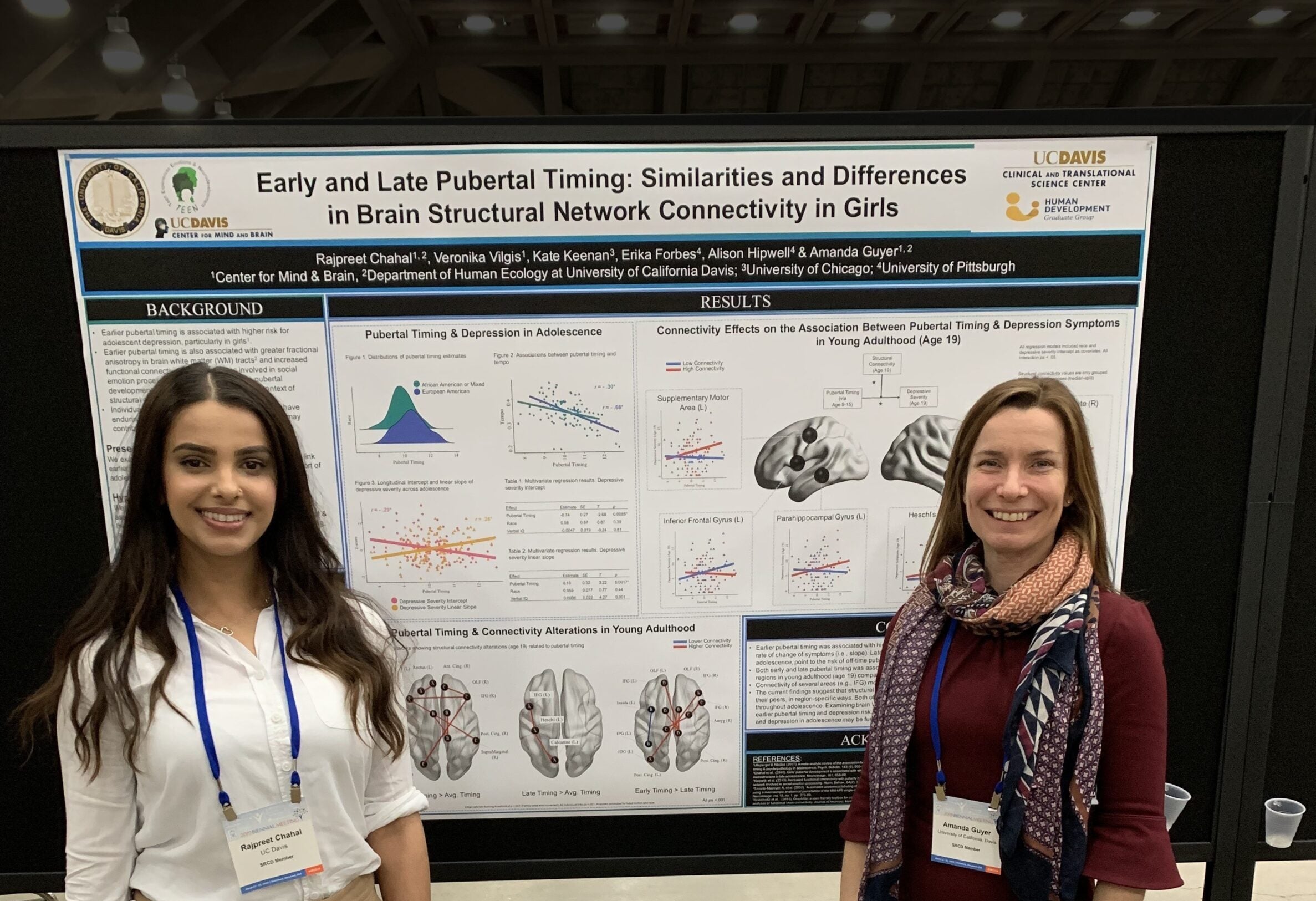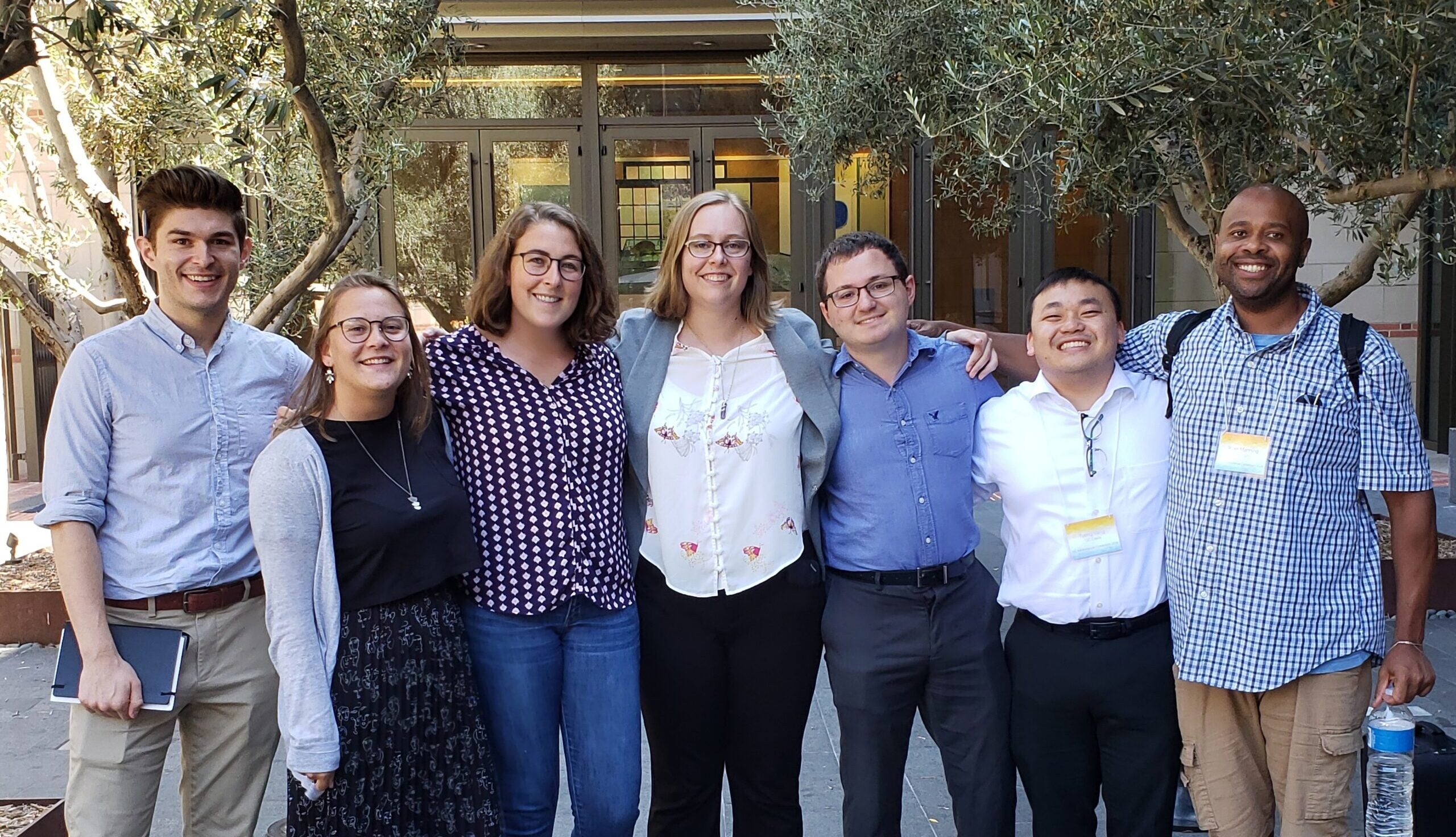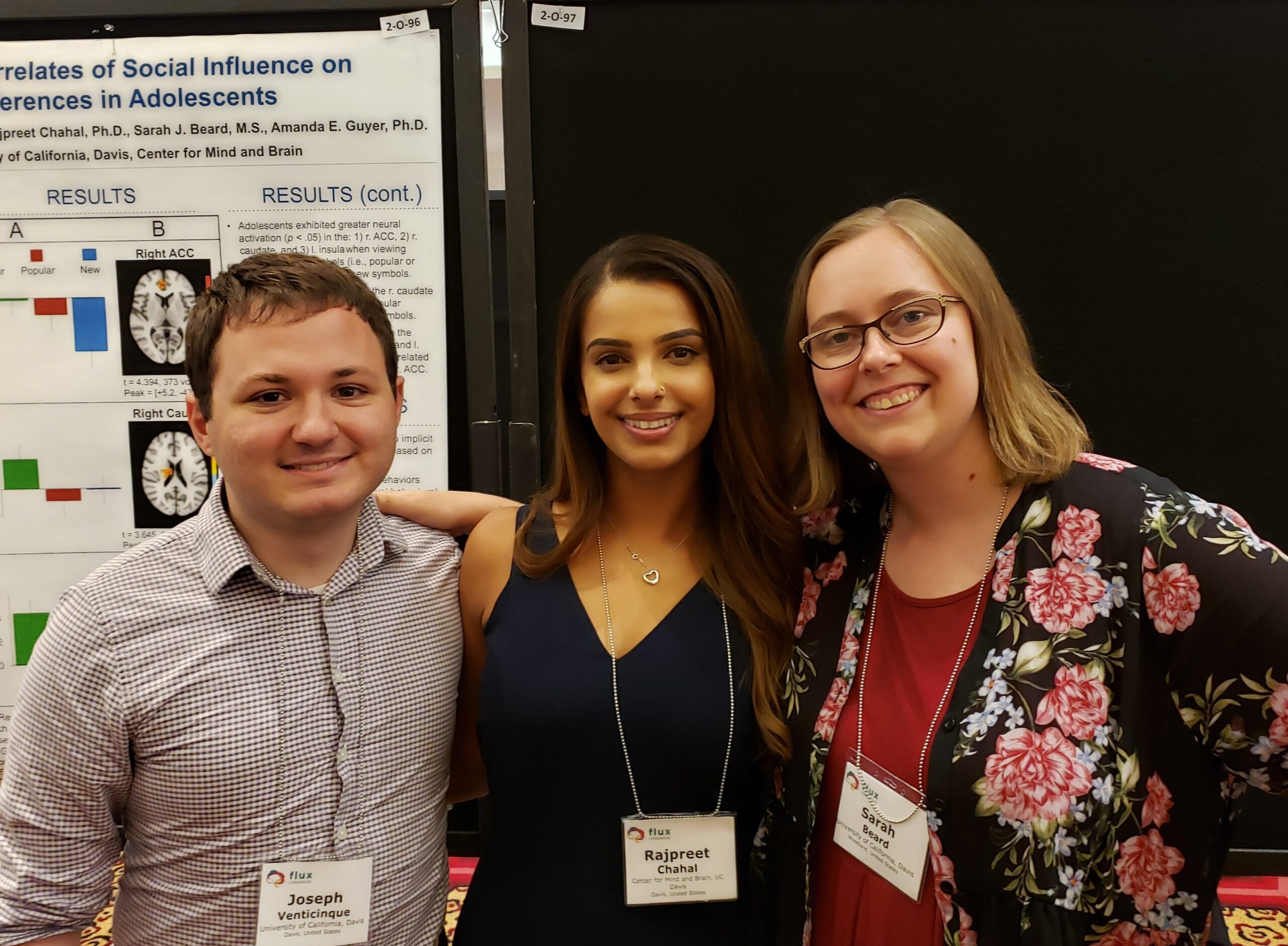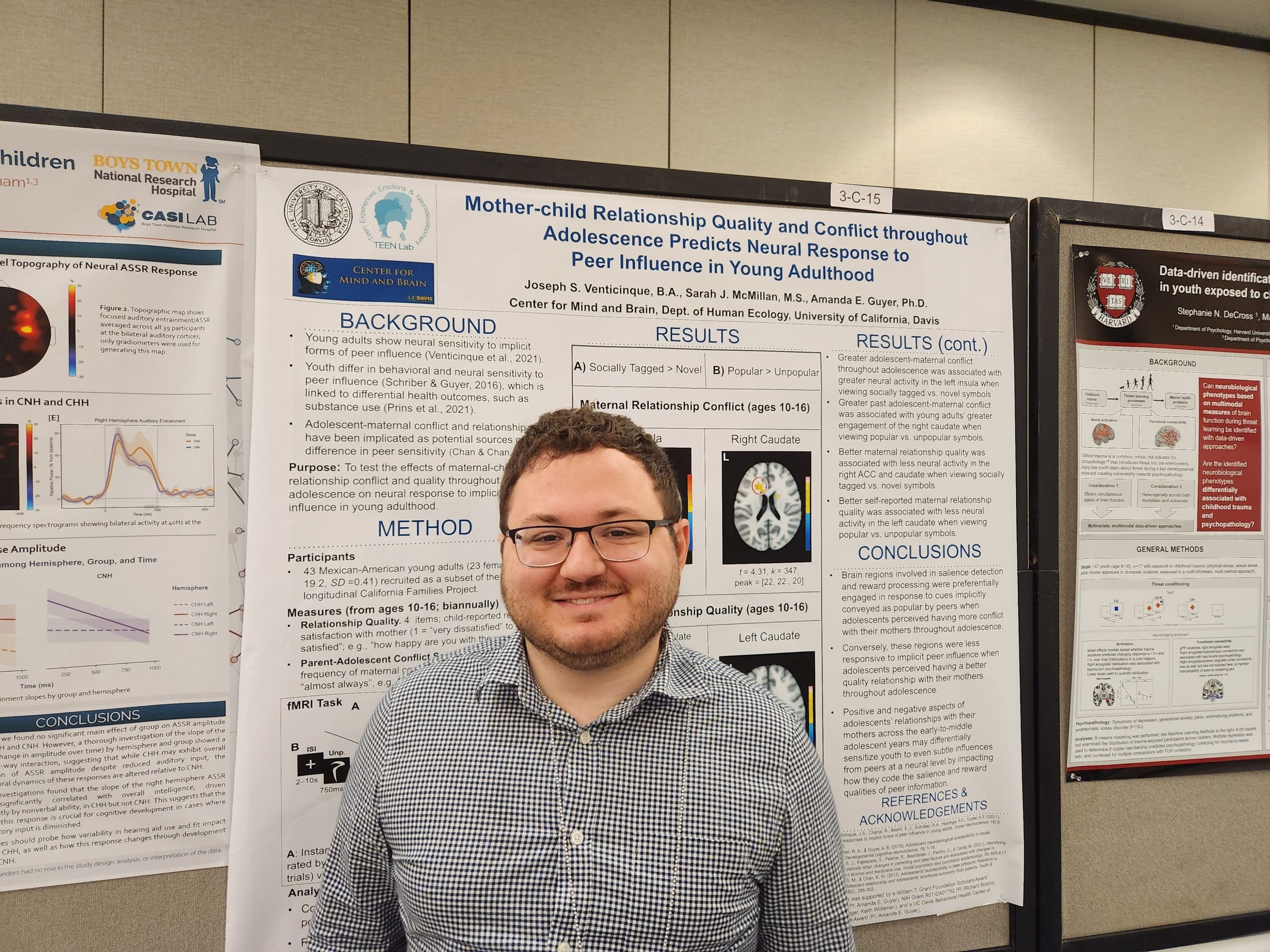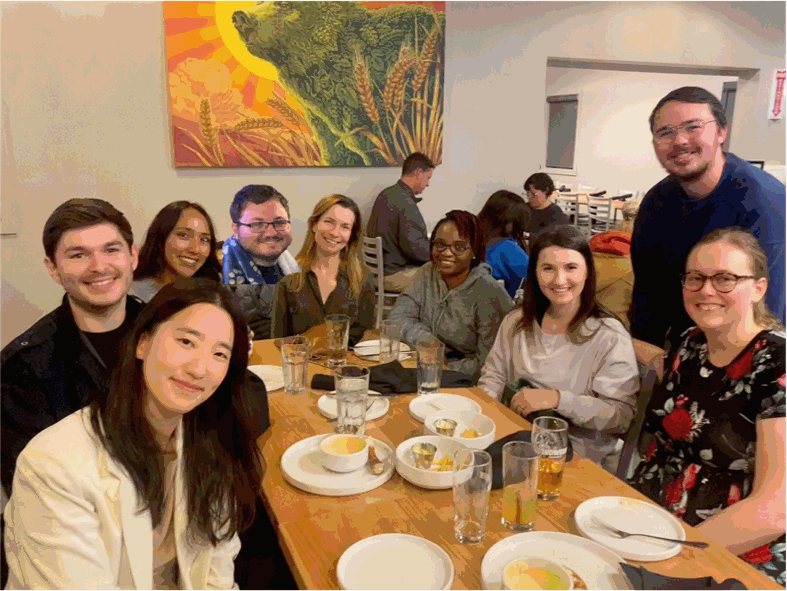This study is designed to examine the development of depressed mood and depressive disorder among Mexican-origin adolescents 16 to 19 years of age. These youth are participants in the California Families Project at UC Davis, a 10-year, prospective, longitudinal study of risk and resilience to substance use of over 650 Mexican-origin families. Our study incorporates fMRI brain imaging and psychophysiological (e.g., heart rate, skin conductance) measurements. By taking a multi-faceted look at the neurobiological systems in relation to psychosocial measurements in adolescence, this project aims to assess the neurobiological processes that underlie reactivity to emotional, social and reward cues. In addition to characterizing these neurobiological processes, this project aims to examine how gender, sociocultural, and environmental adversity contribute to the development of depression problems. Our goal is to examine interactions between multiple biological systems and social contextual factors that lead to the development of depression problems in Mexican-origin youth. Funding for this project is provided by the National Institute of Mental Health (PIs: Amanda Guyer and Paul Hastings) and the William T. Grant Foundation (PI: Amanda Guyer).
This study takes place at the Imaging Research Center (IRC) in Sacramento. Click here for more information about MRI. Click here for directions to the IRC.
